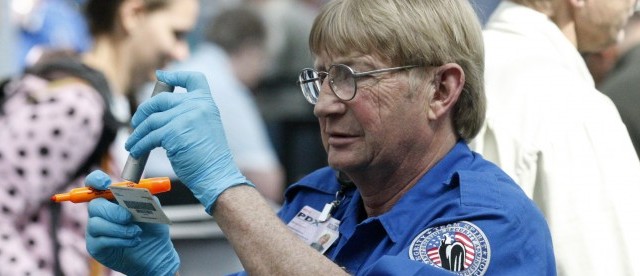Elizabeth Dorton
Daily Caller
August 12, 2013
The Transportation Security Administration has expanded its duties beyond simple security checks at American airports. Now, unsuspecting citizens can be searched at different transportation hubs across the country.
The TSA, created after the Sept. 11, 2001 attacks, is now comprised of 56,000 people working in 450 U.S. airports.
The agents, who are permitted to search citizens in other places, such as Amtrak train stations, are part of the TSA’s Visible Intermodal Prevention and Response (VIPR) squads, which was formed in 2005, partly as a reaction to the 2004 Madrid train bombing, The New York Times reports.
VIPR teams are allowed to branch out from the TSA’s normal airport jurisdiction to train stations, music festivals, highway weigh stations and sporting events.
VIPR teams were present at the Republican and Democratic National Conventions, as well.
John Pistole, administrator of the TSA, cites the VIPR teams as special counterterrorism teams designed to fight crime.
“Our mandate is to provide security and counterterrorism operations for all high-risk transportation targets, not just airports and aviation. The VIPR teams are a big part of that,” he said to the Times.
TSA officials say that these searches are conducted for “special needs” and “administrative” purposes.
However, Department of Homeland Security auditors, congressmen and civil liberties groups disagree.
The DHS auditors say that the VIPR agents and TSA officials might not have ”the skills and information to perform successfully in the mass transit environment.”
Khaliah Barnes, administrative law counsel at the Electronic Privacy Information Center, refutes the notion that the VIPR teams are totally innocuous because of the amount of power they wield without true checks and balances.
“The problem with T.S.A. stopping and searching people in public places outside the airport is that there are no real legal standards, or probable cause,” Barnes told the Times. ”It’s something that is easily abused because the reason that they are conducting the stops is shrouded in secrecy.”
With only ten teams in 2008, and now up to 37 with a $100 million annual budget, the VIPR program is ever-expanding.

